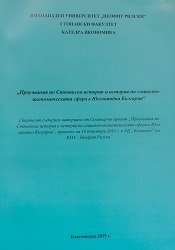
We kindly inform you that, as long as the subject affiliation of our 300.000+ articles is in progress, you might get unsufficient or no results on your third level or second level search. In this case, please broaden your search criteria.

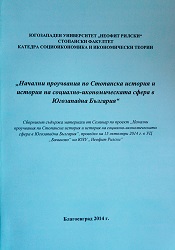
The collection contains materials from the Seminar on the "Initial Researches in Economic History and History of the Socio-Economic Sphere in Southwestern Bulgaria", held on October 15, 2014 in University center "Bachinovo" of South-West University.
More...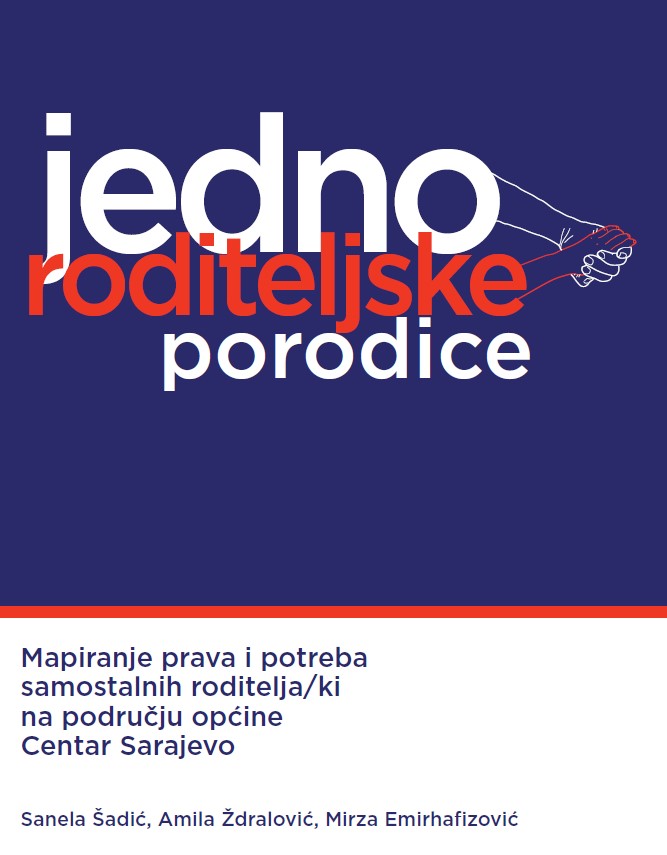
Država Bosna i Hercegovini je potpisnica brojnih međunarodnih konvencija koje postavljaju standarde koji se tiču zaštite ljudskih prava i sloboda i kojima se insistira na uvažavanju dostojanstva svih pojedinki i pojedinaca. Pored toga, Bosna i Hercegovina je na državnom nivou usvojila, između ostalog, Zakon o ravnopravnosti spolova i Zakon o zabrani diskriminacije. Kroz različite sociološko-pravne analize ona se može prepoznati kao školski primjer diskrepancija između de iurei de facto stanja ravnopravnosti svih osoba. Ipak, čak i onda kada se u analizama (pre)naglašava dobro de iure stanje, oblast porodičnog zakonodavstva se može izdvojiti kao ona oblast koja nužno traži određene korekcije. Čak i međunarodni standardi koji se tiču unaprjeđenja porodičnog života otvoreni su za dalju debatu. Naime, ovo je oblast u kojoj dolaze do izražaja sve diskrepancije različitih ideoloških pozicija što može biti predmet posebne rasprave. Ostavljajući po strani ove sporove, a imajući u vidu dosadašnja istraživanja, ovdje je potrebno ukazati na nekoliko bitnih uvida koji su rezultat dosadašnjih istraživanja u Bosni i Hercegovini.
More...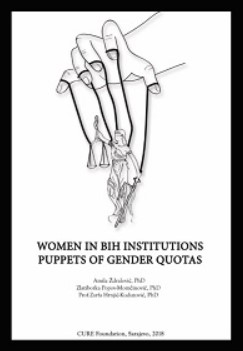
Na osnovu dosadašnjih istraživanja može se izvesti teza da je Bosna i Hercegovina školski primjer razdvajanja pravnog (de iure) i stvarnog (de facto) ostvarenja rodne ravnopravnosti. Međutim, niti su u prvom segmentu opravdana idealizovanja, niti su u drugom opravdana nivelisanja onoga što je do sada urađeno. Prethodno se može konstatovati da je zakonodavstvo sagrađeno na bespolnoj legislativi koja se naknadno pokušava korigovati kroz mehanizme posebne zaštite ženskih ljudskih prava.
More...
Istraživanje koje stoji pred vama je nastalo kao dio aktivnosti koje se sprovode u sklopu projekta „Žensko zagovaranje za rodnu ravnopravnost“ koji realizuje Fondacija CURE u 2017. godini. Istraživanje je rađeno četiri mjeseca i to od mjeseca marta do jula 2017. godine. Osnovni cilj istraživanja jeste analiza problema žena u svakodnevnom životu, kao i postojanje rodnih lokalnih politika s fokusom na pet odabranih područja: Romanija i Istočno Sarajevo (Pale, Sokolac, Rogatica, Istočno Sarajevo, Trnovo, Bjelosavljevići, Podromanija, Prača); šira okolina Sarajeva (Hadžići, Ilijaš, Semizovac, Hrasnica, Visoko, Kakanj); Kanton 10 (Livno, Kupres, Bugojno, Bosansko Grahovo, Tomislavgrad); Tuzla i okolina Tuzle (Tuzla, Srebrenik, Špionica, Gračanica, Orašje, Gradačac); Bihać i okolina. U okviru istraživanja jedan od ciljeva je bio i da se posebno mapiraju problemi društveno marginalizovanih grupa žena.
More...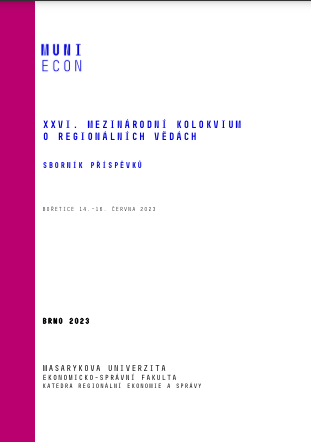
The conference proceedings consist of papers presented at the 26th International Colloquium on Regional Sciences that was organized by Department of Regional Economics and Administration FEA MU. It contains 52 articles arranged by topic. The individual articles deal with e.g. socioeconomic disparities among regions, regional policy, territory attractiveness, tourism or regional public administration.
More...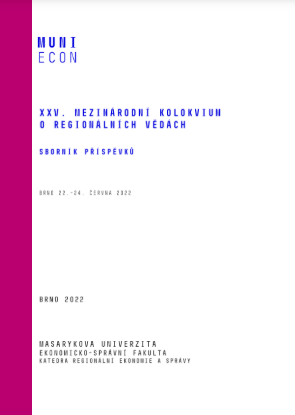
The conference proceedings consists of papers presented at the 25th International Colloquium on Regional Sciences that was organized by Department of Regional Economics and Administration FEA MU. It contains 57 articles arranged by topic. The individual articles deal with e.g. socioeconomic disparities among regions, regional policy, territory attractiveness, tourism, or regional public administration.
More...
Undoubtedly, the industrial growth in recent years has aroused wide interest, not only from researchers and economic analysts but also from politicians and practitioners. The main goal, implemented in the three stages of the study, is: To make an analysis of the industrial sector, including the current state of Bulgarian industry and the structural changes that have occurred in the industry over the past 25 years. The implementation of the individual stages also takes into account the implementation of the following project results: analysis of the historical development of the industry worldwide and comparison with the development of the Bulgarian industry; An analysis of the state of Bulgarian industry by year as a whole and by individual sectors was conducted. A real assessment of the state of Bulgarian industry and the historical basis of this state has been made; the main factors limiting or stimulating the growth of industrial enterprises in selected sectors have been identified; a real assessment of factors, incl. events, measures, or mechanisms of the industrial policy, that lead to the realization of the potential for growth of the industrial enterprises and hence of the growth of the Bulgarian industry; systematized main conclusions and guidelines for the development of individual sectors and industry as a whole for the next few years.
More...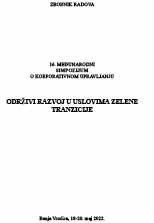
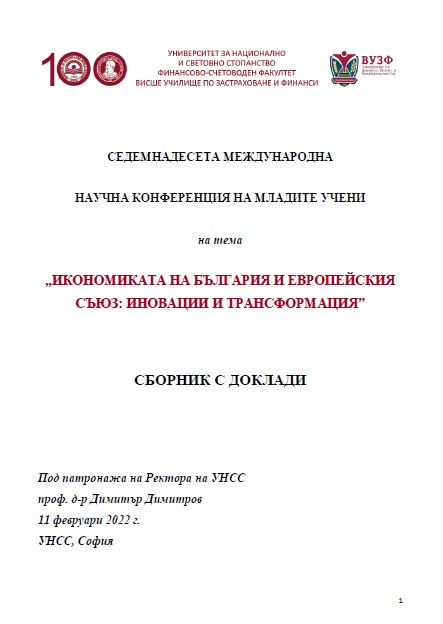
The 17th International Scientific Conference of Young Scientists was held on 11 February 2022 online (virtually) in the electronic platform MS Teams due to the Covid-19; pandemic. The conference is financed by a university scientific project for a scientific event under contract No. NID NP-4/2021 at the University of National and World Economy (UNWE), Sofia. The Faculty of Finance and Accounting at the UNWE, Sofia, organizes the conference under the patronage of the Rector of UNWE Prof. Dimitar Dimitrov, Ph.D. and the co-organizers of the conference are the following leading universities: VUZF University, Sofia, Bulgaria, University of Bologna – Alma Mater Studiorum Universita di Bologna-Sede di Rimini, Bologna, Italy, University of Split, Faculty of Economics, Business and Tourism, Split, Croatia, Poltava University of Economics and Trade, Poltava, Ukraine, Lutsk National Technical University, Lutsk, Ukraine, University of Rijeka, Faculty of Economics and Business, Rijeka, Croatia, and Ss. Cyril and Methodius University of Skopje, Skopje, Republic of North Macedonia. The International Conference of Young Scientists brings together doctoral students, post-doctoral students, researchers, lecturers and students to present their scientific research and discuss their views on the most current and significant problems of the economy at the national and international level. The published scientific results of the conference prove the significant potential for the future professional development of young scientists. The format and organization of the conference are aimed at creating an academic atmosphere that favors dialogue and the exchange of ideas both between the different levels of the academic collegium and with prominent specialists from economic practice. The papers are in Bulgarian and English.
More...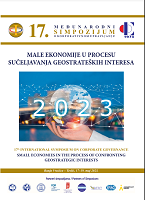
Banja Vrućica, 17-19. maj 2023.
More...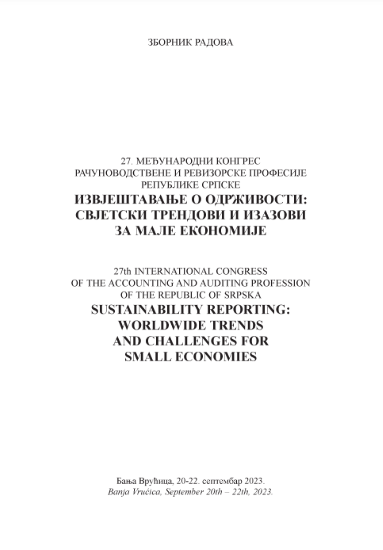
Banja Vrućica, September 20th-22th, 2023.
More...
Przemiany gospodarcze i społeczne ostatnich dekad spowodowały zmianę w postrzeganiu przedsiębiorstw społecznych w Polsce, które przestały być synonimem spółdzielni socjalnych. Przedsiębiorstwa społeczne, pomimo specyficznego sposobu funkcjonowania, podobnie jak inne podmioty gospodarcze podlegają przemianom technologicznym. W realiach gospodarki 4.0 digitalizacja stała się konieczną inwestycją dla wszystkich jednostek. Dla niektórych podmiotów jest ona warunkiem przetrwania, a dla innych źródłem możliwości rozwojowych. W książce została podjęta problematyka digitalizacji przedsiębiorstw społecznych oraz ich finansowania. Na podstawie studiów literaturowych oraz badań empirycznych dokonano oceny dywersyfikacji źródeł finansowania przedsiębiorstw i kształtowania się ich przychodów w latach 2019–2021, określono poziom digitalizacji przedsiębiorstw społecznych oraz ustalono zależności między poziomem digitalizacji i finansowaniem przedsiębiorstw społecznych w Polsce. Niniejsza monografia to pierwsza publikacja poświęcona tej problematyce w Polsce i jedna z nielicznych w literaturze międzynarodowej. Może być wykorzystana przez studentów nauk społecznych, zwłaszcza kierunków ekonomicznych i finansowych. Zawarte są w niej także wnioski ważne dla menedżerów przedsiębiorstw społecznych oraz decydentów politycznych, współtworzących system wsparcia rozwoju ekonomii społecznej w Polsce.
More...
Zbiór „Jak mówić o zrównoważonym rozwoju? Scenariusze lekcji dla szkół ponadpodstawowych” ma za zadanie wsparcie nauczycieli chcących rozmawiać z uczniami na tematy związane z transformacją systemu społeczno-gospodarczego w kierunku zrównoważonym. Scenariusze poruszają wiele zagadnień, dzięki czemu młodzi ludzie będą mieli okazję zdobyć wiedzę z różnych obszarów tej złożonej dziedziny: zielonej i cyfrowej transformacji, odpowiedzialnej konsumpcji żywności, gospodarki o obiegu zamkniętym, idei zero waste. Autorzy podkreślają, że każdy może przyczynić się do koniecznej zmiany i wskazują dostępne sposoby. Każdy scenariusz jest zbudowany według tego samego schematu ułatwiającego przygotowanie i prowadzenie lekcji: zaczyna się od określenia celów zajęć, metod i form pracy, kluczowych pojęć oraz materiałów pomocniczych, które można zastosować podczas lekcji. Dalej opisany jest proponowany przebieg zajęć. Na końcu każdego scenariusza znajdują się źródła i przydatne linki oraz materiały pomocnicze gotowe do wykorzystania podczas lekcji. Publikacja jest współfinansowana ze środków projektu Jean Monnet Resilient and transforming Europe TRANSFORM EU
More...
The volume offers a framework for debating the main challenges faced within the European Union and globally, emphasizing the regulatory perspective for the financial sector, in particular, and for the business sector, in general.
More...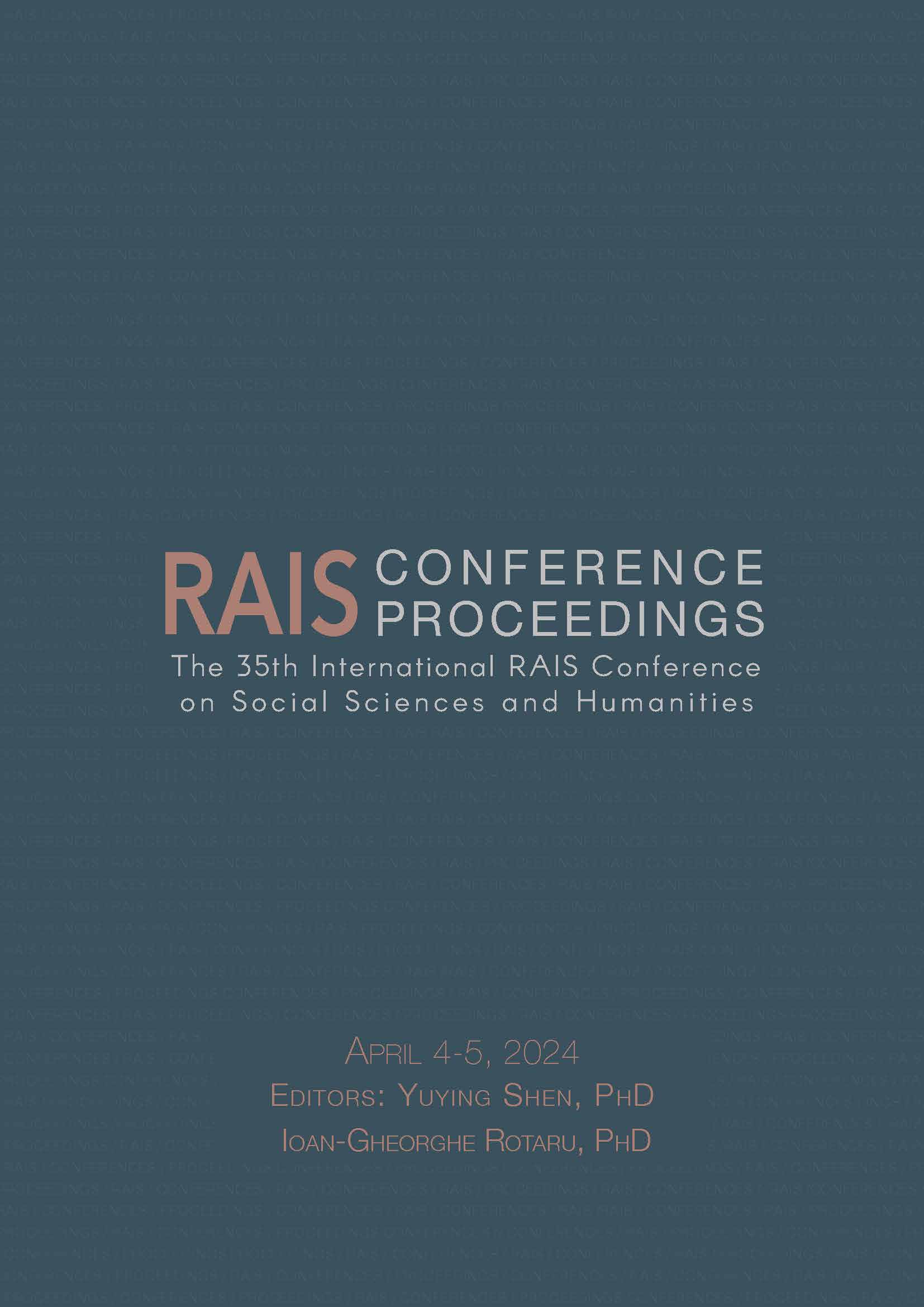
This publication presents the proceedings of the 35th International RAIS Conference on Social Sciences and Humanities held at American University in Washington DC, USA, on April 4-5,2024.
More...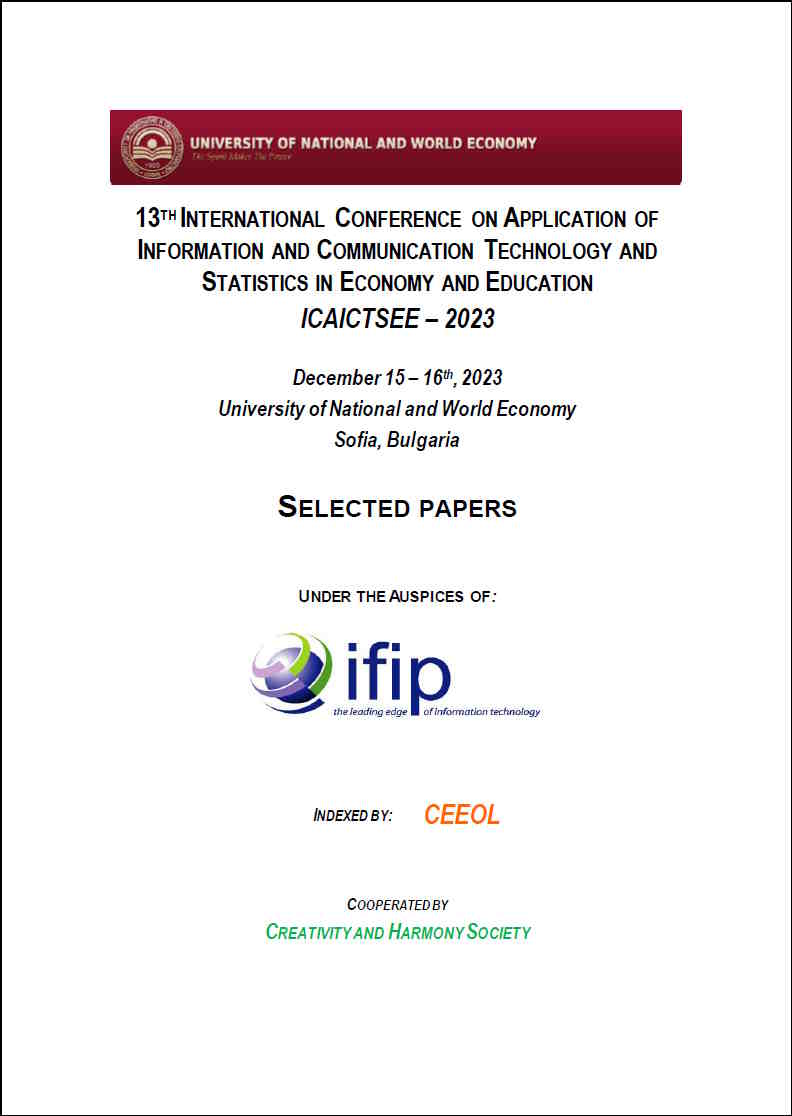
On December 15 and 16, 2023, the 13th International Conference on Application of Information and Communication Technology and Statistics in Economy and Education was held, organized by the Department of "Informatics" at the University of National and World Economy, Sofia, Bulgaria. During the conference, the results of the application of ICT in various fields of economy, education and related fields of scientific knowledge were presented, and some advanced and emerging research trends of long-term significance were discussed. The conference was held under the auspices of the International Federation for Information Processing (IFIP).
More...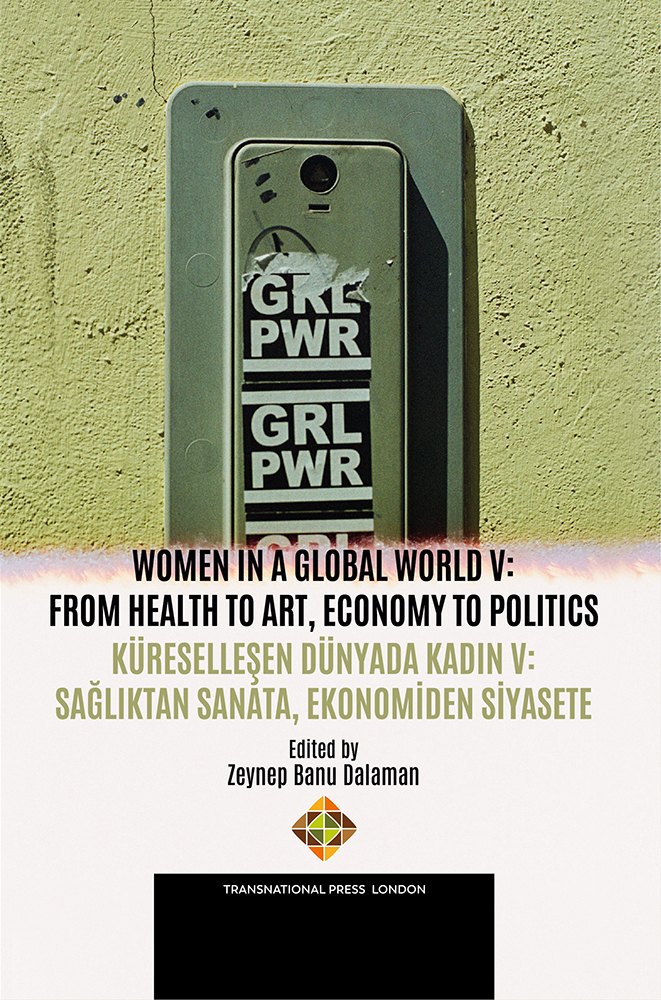
Women in a Global World V: From Health to Art, Economy to Politics offers an in-depth exploration of women’s roles, challenges, and achievements across diverse domains in today’s interconnected world. Edited by Zeynep Banu Dalaman, this volume gathers insights from leading scholars and researchers, dissecting the multifaceted issues impacting women globally and regionally.Organized into six sections, the book begins with the harsh realities of gender inequality, violence, and the institutional support available to women, including discussions on the effects of gender apartheid and misogyny. Moving to the realm of artistic and literary expression, it highlights female resilience and creativity, showcasing iconic figures like Grace Nichols and Paula Scher, and examining the evolution of women’s roles from traditional forms to modern representation.The third section delves into the unique vulnerabilities women face during disasters, including invisible labor and health challenges, while the fourth addresses the economic empowerment of women through employment initiatives, the hurdles of workplace inequality, and strategies for economic resilience. Health-focused topics in the fifth section bring attention to reproductive health, midwifery, and evidence-based practices that impact women’s well-being across life stages.Finally, the book examines women’s political and media representation, from the historical legacy of female leaders to contemporary issues such as gender quotas and gendered disinformation. By interweaving these perspectives, Women in a Global World V provides a profound understanding of women’s ongoing struggle for equality, creativity, and empowerment within a rapidly changing global landscape.Ideal for scholars, policymakers, activists, and anyone interested in the intersections of gender, society, and global dynamics, this volume is a vital resource for understanding and supporting women’s roles in shaping the future.
More...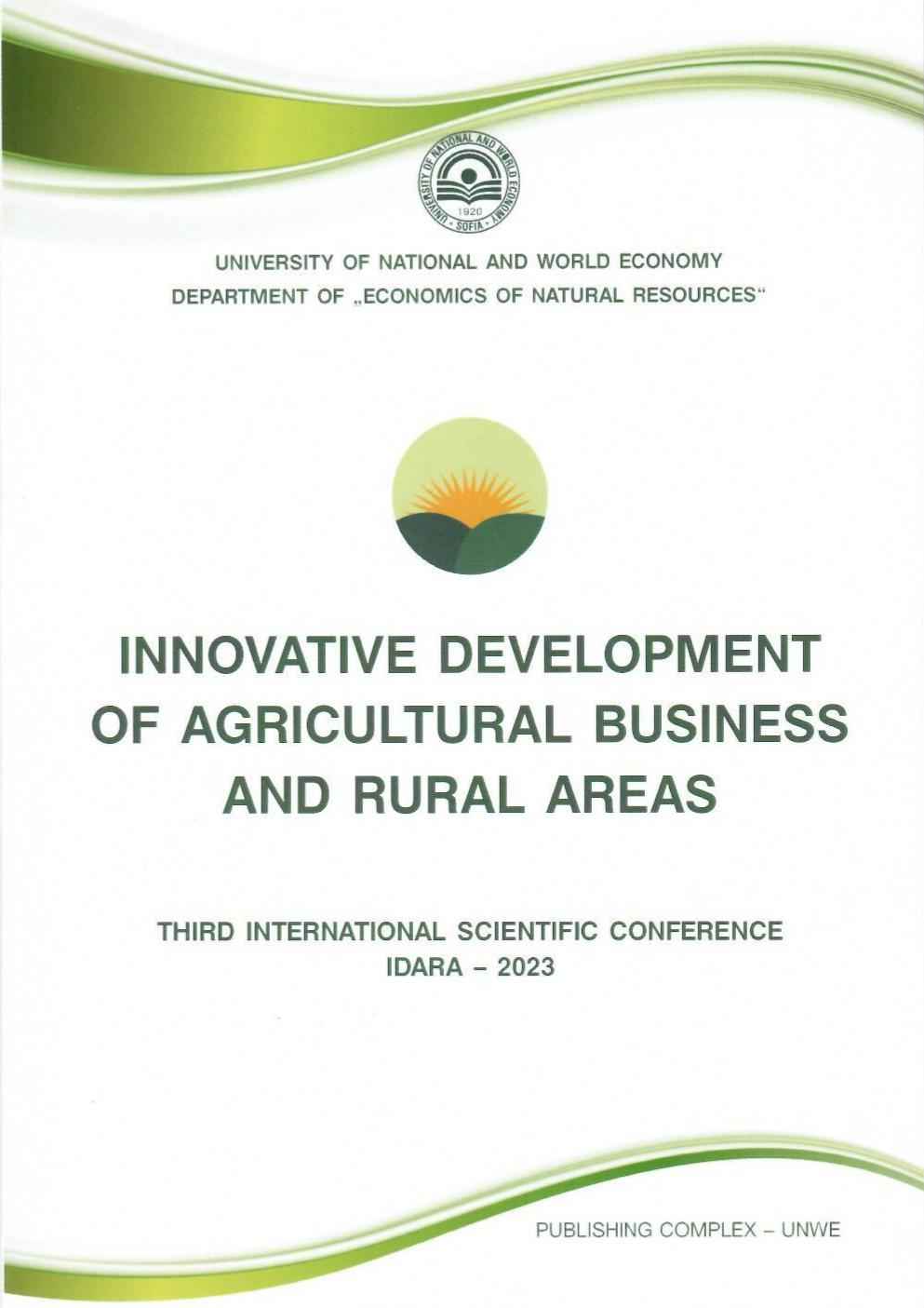
The conference proceedings include the papers presented at the third consecutive International Scientific Conference, "Innovative Development of Agrarian Business and Rural Areas", organized by the Department of "Economics of Natural Resources" of the University of National and World Economics on September 28 and 29, 2023. The development of agrarian business in the conditions of the Common Agricultural Policy, the processes of digitization and globalization, climate changes, the COVID-19 pandemic and others posed a number of challenges to agrarian business and rural areas. They led to the need to look for new solutions in the field of policies, business models, the transition to a green economy, bio-economy, circular economy and others. On this basis, a number of problems, discussion questions and strategic opportunities arose for researchers and experts in the agrarian economy and regional development. The topic of the scientific conference aroused wide interest in the scientific community. Requests for participation in the conference were received from 72 authors with 37 abstracts of reports. After checking for originality and 2 anonymous reviews, 30 papers with 64 authors were included and presented in the conference program. A significant part of the authors (34.4%) are researchers and teachers from seven countries in Europe and Asia.In the plenary session and at the meetings sections, were presented reports in several thematic directions: Innovative business models for the development of agrarian business and rural areas; European and national policies for innovative development of agriculture and rural areas; Digitization, diversification and sustainable growth in rural areas; Bioeconomy, green architecture and business; Innovative approaches to agricultural and rural management.
More...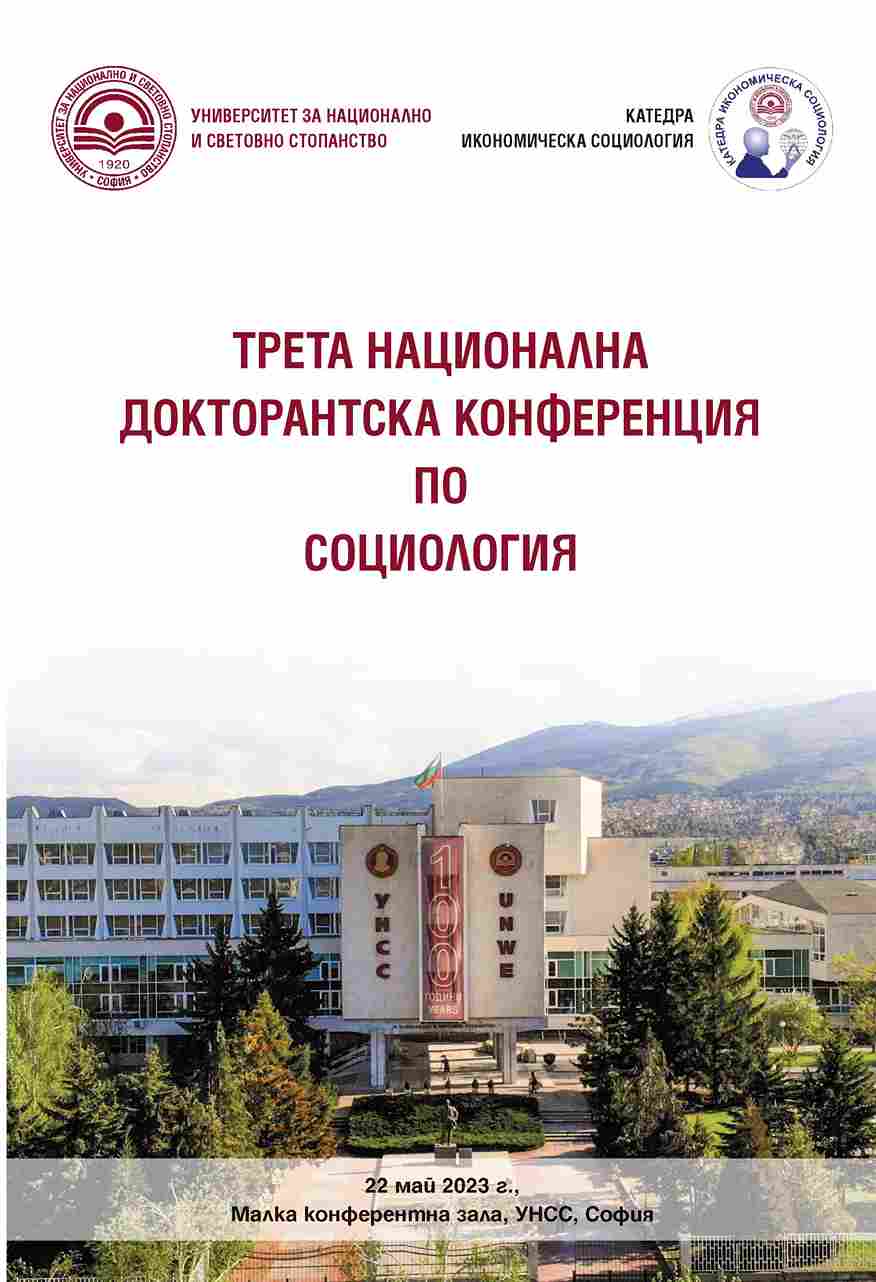
The collection of articles, presented during the Third National Doctoral Conference on Sociology at the University of National and World Economy in May 2023, addresses diverse and interdisciplinary topics reflecting the state of contemporary social research in Bulgaria. The volume brings together empirical and theoretical contributions of doctoral students, ranging from the impact of digitalization on political campaigns and labor dynamics in online platforms to explorations of professional autonomy and the symbolic boundaries of public spaces. With a strong focus on empirical methodologies, the collection provides fresh insights into themes such as organisational conflicts, healthcare reforms, transhumanism and civic engagement. Noteworthy are the innovative approaches and critical discussions led by doctoral researchers and established academics, fostering a productive exchange of ideas. This collection not only enriches the sociological discourse in Bulgaria but also has the potential to contribute to the global understanding of social transformations in post-transition contexts.
More...